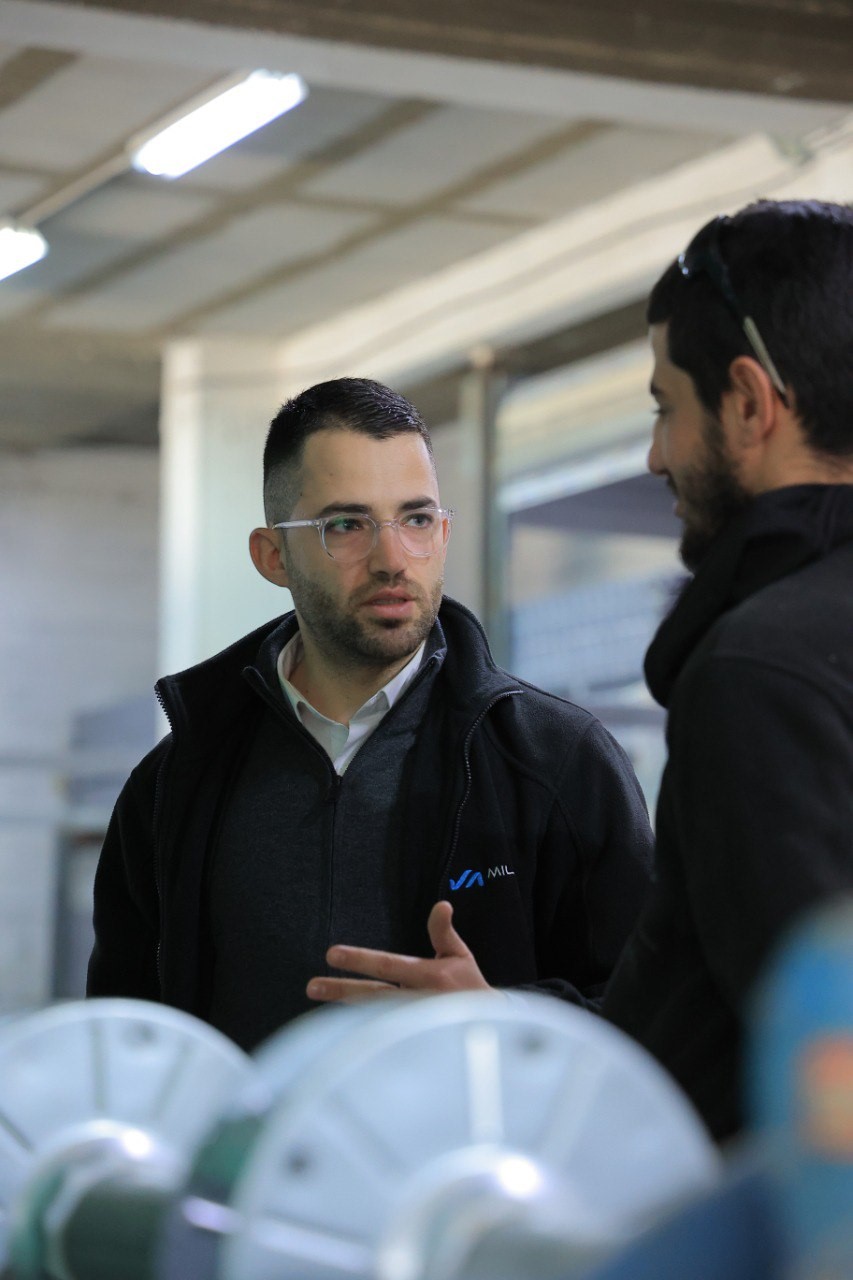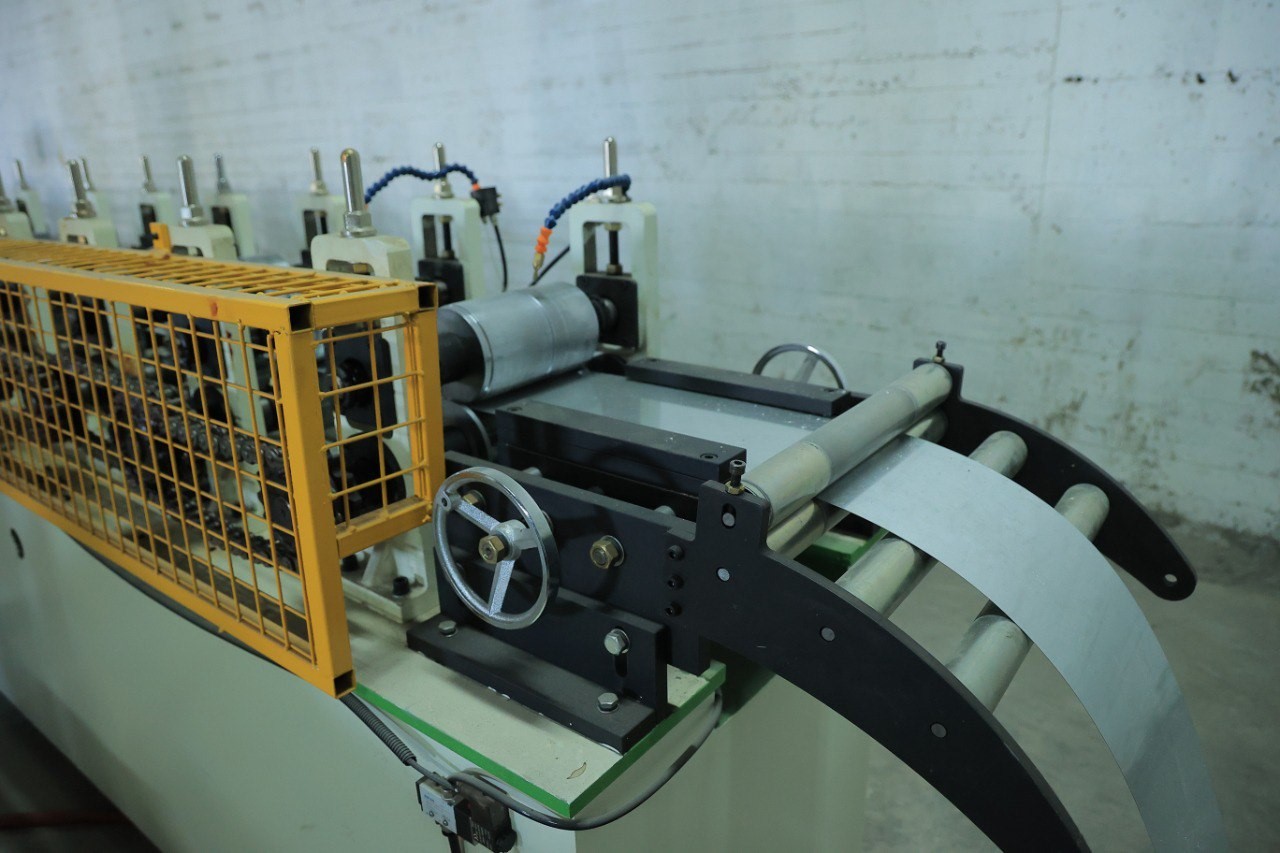
Bethlehem, occupied West Bank – As the occupied West Bank roils with near-daily Israeli raids, settler attacks and killings of Palestinians, an overlooked impact of the violence is starting to take its toll.
The past few months, Muhanad Nairoukh, manager of one of the three biggest aluminium factories in the occupied West Bank, tells Al Jazeera, have been the worst for production and profits in a long time.
Life in the occupied West Bank is becoming more dangerous and complicated for the people living there, and alongside that, industry has crawled to a near halt as a result of Israeli actions, making it impossible to have “business as usual”.
Losses across Palestinian industry
Nairoukh manages more than 30 employees who keep the company his father founded in 1993 running.
He has found himself having to cut costs recently as the company operates at 40 percent capacity, and production has been reduced by 60 percent.
The Palestinian Central Bureau of Statistics (PCBS) estimated at the end of December that the overall economic losses in Palestine, since the beginning of the Israeli aggression on Gaza, reached around $1.5bn during the initial months of the war, equivalent to approximately $25m per day, excluding direct losses in properties and assets.

The Israeli checkpoints, which at best hold up shipments and at worse refuse to let them through, have increased the cost of internal transportation and shipping between Palestinian cities and overseas.
Conversely, importing raw materials has become a logistical nightmare, significantly inflating production costs at a time when demand is plummeting due to the war.
Nairoukh added that the checkpoints also affect the ability of workers to get to work on time, with truck drivers having to reroute their shipments, which exposes them to danger in addition to the time it wastes.
Importing raw materials, as Nairoukh does from countries including China, Italy, Spain and Turkey, has been complicated by the closure of ports at the beginning of the war, leading to delays that resulted in inflated costs.
A shipment from China, he said, used to cost $1,650 before the war but skyrocketed to $7,600 afterwards, a 360 percent increase – the kind of rise in costs that he is not sure he will be able to absorb for much longer, especially as delays mean cancelled orders and contracts.
Samir Hazboun, secretary-general of the Federation of Palestinian Chambers of Commerce, Industry and Agriculture, told Al Jazeera that both extractive and transformative industries in Palestine are in trouble.
He added that other factors, such as the fluctuating exchange rates for industries that import raw materials, also play a big role.
No sales, no profits, bouncing cheques
Nairoukh and other business owners who service the construction sector, as he does, have found their sales plummeting as construction has come to a near-standstill.
As fewer and fewer public and private sector employees receive their salaries and Palestinians who used to work in Israel are barred from crossing the checkpoints, there is less money for even individuals to complete construction projects.
While October to May is usually the construction high season, this year it was a season of significant loss instead.
Collecting money owed on older orders is also becoming more complicated as cheques bounce because the people who wrote them a few months ago now have empty bank accounts.
In just one day, Nairoukh reveals, he had about 67,000 shekels ($18,000) worth of cheques bounce.
He is not likely to try to go after these individuals either, he says, as it is not possible to expect them to pay off such amounts when the situation is so dire for all Palestinians. But losing out on this potential income burdens his company financially even more.

Hazboun predicts that, if these conditions continue, there will be numerous economic collapses. For example, he says, only 30 to 35 of Bethlehem’s 130 stone and raw material factories are operational.
Worrying about the employees
Nairoukh has felt this pinch in all aspects of his life as the father of two has had to postpone maintenance and renovation projects for the family home and may find himself reducing household expenses if the war persists.
He has kept his employees on and continued paying them, but he acknowledges that this may not be possible for much longer if the war persists, at which point layoffs may be necessary.
His employees also worry about their livelihoods. They consider themselves lucky to still have jobs but know full well that the situation is very precarious.
Rakan Ibrahim Abu Al-Hur, who lives near Bethlehem, considers himself lucky to still have his job cutting and processing aluminium rolls. Responsible for supporting his parents and five siblings, he really hopes the situation improves soon.
He tells Al Jazeera how difficult it is now to commute back and forth from his village of ash-Shawawra to Bethlehem for work.
The checkpoint at the city’s entrance is frequently closed or the inspection lines are long and slow, delaying everyone who is trying to get through.
“I hope this all ends soon because if the war doesn’t stop, everything will collapse and I’ll lose my job,” Rakan says sadly.








